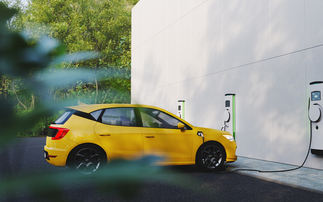Credit where it is due - the government is finally delivering some of the policy moves required to unlock a new wave of EV adoption
Last year I was lucky enough to spend a week driving a Nissan LEAF, which was a largely amazing experience enjoying a largely amazing car.
The one disorienting aspect of the seven day trial of living with an electric vehicle (EV) without access to off-street parking and a domestic charge point came as you'd expect from the recharging challenge. But the confusion was provided not so much by the need to find and use public charge points, which was on balance a hassle worth dealing with for the benefits of low cost, ultra-clean motoring. It came more from the fragmented, mosaic-like nature of said charge points and the operators that run them.
By the end of the week I had one key fob with an RFID tag and one charge card for two separate networks that the good people at Nissan had provided me with, two separate apps on my phone for each of those schemes, two further apps for two other networks, and a map app for tracking where the various charge points from the different networks were located.
On Twitter, some EV owners informed me this was amateur hour and they had at least eight different apps and cards about their person.
Fragmentation is inevitable in any new market, but ultimately this is critical infrastructure and as I said in my review last year it is long past time that someone Oyster-carded the hell out of all the various networks.
So credit where it is due to the government for yesterday announcing that all fast chargers should from next year include pay as you go contactless debit or credit card functionality. Moreover, bravo for signalling in no uncertain terms that legislative steps will be taken if network operators refuse to play ball. And kudos for also reminding them that roaming services that allow anyone to use any network better materialise sharpish.
These are simple changes that promise to have a big positive impact on EV adoption. Taken in conjunction with last week's tweaks to company car taxes to better incentivise EVs and yesterday's consultation on changing building standards to ensure all new homes have charging units as standards, it is clear the government is finally moving to make the policy architecture surrounding zero emission motoring much more supportive. Add in the continued funding for EV grants, charging infrastructure, and battery R&D, and the new loan to help Jaguar Land Rover deliver its electric production line and it looks as if the foundations are finally being properly laid for a net zero road transport system.
Yes, these relatively simple changes for addressing entirely predictable challenges should have come sooner. And yes, the government's overarching date for phasing out the sale of conventional vehicles is still about a decade too late. But these are encouraging developments all the same.
With EV ranges improving all the time, the fast charge network expanding fast, and the promise of only having to have charging app on your phone on the horizon, several more of the arguments against buying an EV are starting to fall away.
A version of this article originally appeared in the BusinessGreen Overnight Briefing email, which is available to all BusinessGreen subscribers.










